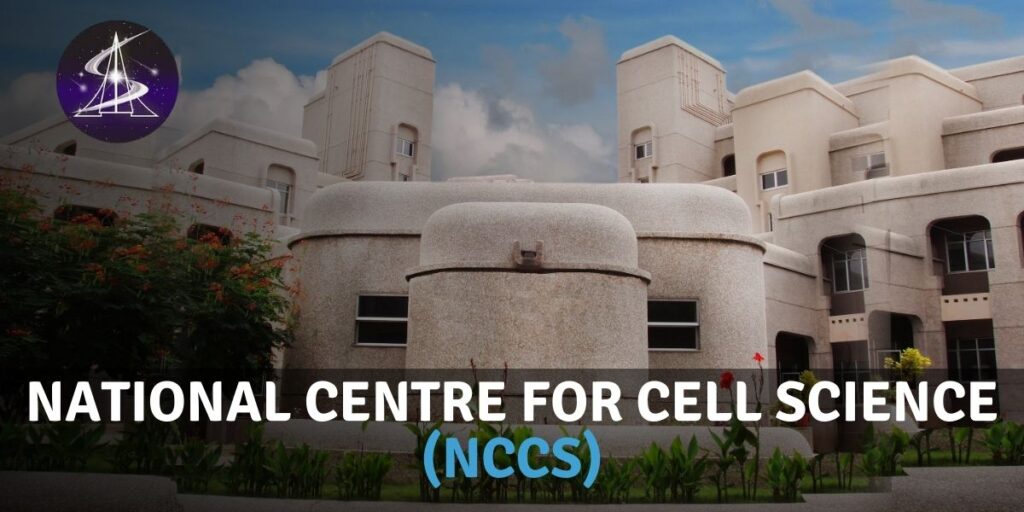The National Centre for Cell Science (NCCS) is a premier research institute located in Pune, India, that specializes in the field of cell biology and related areas. The institute was established in 1986 under the aegis of the Department of Biotechnology, Government of India, and has since then been at the forefront of research in cell biology, genetics, and molecular biology. In this article, we will explore the various facets of NCCS, including its research programs, infrastructure, faculty, and collaborations.
Research Programs
The National Centre for Cell Science (NCCS) is a premier research institute in India that focuses on research in the areas of cell biology, genetics, genomics, and biotechnology.
Some of the major research areas at NCCS are:
-
Stem Cell Biology and Regenerative Medicine
NCCS is involved in research on stem cell biology and its application in regenerative medicine. The center is working towards understanding the molecular mechanisms involved in stem cell differentiation, proliferation, and regeneration.
-
Cancer Biology
NCCS is involved in research on various aspects of cancer biology, including cancer genetics, molecular mechanisms of carcinogenesis, tumor microenvironment, and cancer immunology. The center is also working towards developing novel cancer therapies.
-
Infectious Diseases
NCCS is involved in research on infectious diseases caused by bacteria, viruses, and parasites. The center is working towards understanding the molecular mechanisms of host-pathogen interactions and developing new strategies for the prevention and treatment of infectious diseases.
-
Neurobiology
NCCS is involved in research on the molecular and cellular basis of nervous system function and dysfunction. The center is working towards understanding the mechanisms underlying neurodegenerative diseases such as Alzheimer’s and Parkinson’s diseases.
-
Genomics and Functional Genomics
NCCS is involved in research on genomics and functional genomics, including the study of gene expression, gene regulation, and epigenetics. The center is working towards understanding the role of genes in various biological processes and diseases.
-
Structural Biology
NCCS is involved in research on the structure and function of proteins and other biological macromolecules. The center is working towards understanding the molecular basis of various biological processes and developing new therapies based on structural information.
Scholarships and Fellowships
-
Junior Research Fellowship (JRF)
NCCS offers JRFs to students who have completed their Masters in Biotechnology, Life Sciences, or related fields. The JRFs are awarded for a period of two years and are renewable based on the performance of the candidate. The stipend for JRFs is as per the norms of the Department of Biotechnology, Government of India.
-
Senior Research Fellowship (SRF)
NCCS offers SRFs to candidates who have completed their PhDs in Biotechnology, Life Sciences, or related fields. The SRFs are awarded for a period of three years and are renewable based on the performance of the candidate. The stipend for SRFs is as per the norms of the Department of Biotechnology, Government of India.
-
Postdoctoral Fellowship
NCCS offers postdoctoral fellowships to young researchers who have completed their PhDs in Biotechnology, Life Sciences, or related fields. The fellowships are awarded for a period of two years and are renewable based on the performance of the candidate. The stipend for postdoctoral fellowships is as per the norms of the Department of Biotechnology, Government of India.
-
Summer Training Program
NCCS also offers a summer training program for undergraduate and postgraduate students. The program is aimed at providing students with hands-on training in cell biology and related areas. The duration of the program is typically two to three months, and the students receive a stipend during their training period.
-
DBT-RA Program
NCCS is a participating institute in the DBT-RA program, which is aimed at promoting postdoctoral research in India. The program provides funding for postdoctoral research projects in various areas of biotechnology and life sciences. The duration of the program is typically two to three years, and the researchers receive a stipend during their research period.
Selection Procedure
The National Centre for Cell Science (NCCS) has a rigorous selection procedure for its various programs. Here is an overview of the selection procedure for some of the major programs:
-
Junior Research Fellowship (JRF)
The selection for the JRF program is based on an online written test followed by an interview. The written test comprises questions from various areas of Life Sciences such as Molecular Biology, Cell Biology, Genetics, etc. Candidates who qualify for the written test are shortlisted for the interview, which is conducted by a panel of experts from NCCS. The final selection is based on the candidate’s performance in the written test and the interview.
-
Senior Research Fellowship (SRF)
The selection for the SRF program is based on an interview. Candidates who meet the eligibility criteria and have published at least two research papers in peer-reviewed journals are shortlisted for the interview. The interview is conducted by a panel of experts from NCCS. The final selection is based on the candidate’s performance in the interview.
-
Postdoctoral Fellowship
The selection for the postdoctoral fellowship program is based on the candidate’s research proposal, academic record, and personal interview. Candidates who meet the eligibility criteria and have published at least two research papers in peer-reviewed journals are shortlisted for the interview. The interview is conducted by a panel of experts from NCCS. The final selection is based on the candidate’s research proposal, academic record, and performance in the interview.
-
Summer Training Program
The selection for the summer training program is based on the candidate’s academic record and a personal interview. Shortlisted candidates are invited for an interview, which is conducted by a panel of experts from NCCS. The final selection is based on the candidate’s academic record and performance in the interview.
-
DBT-RA Program
The selection for the DBT-RA program is based on the candidate’s research proposal, academic record, and personal interview. Candidates who meet the eligibility criteria and have published at least two research papers in peer-reviewed journals are shortlisted for the interview. The interview is conducted by a panel of experts from NCCS. The final selection is based on the candidate’s research proposal, academic record, and performance in the interview.
Education and Training
The National Centre for Cell Science (NCCS) is committed to providing quality education and training to young scientists in the field of cell biology and related areas.
NCCS offers various education and training programs, including:
-
PhD Program
NCCS offers a PhD program in the areas of cell biology, genetics, genomics, and biotechnology. The program is affiliated with the Savitribai Phule Pune University and the Homi Bhabha National Institute. The duration of the program is typically 5 years, and students are required to complete coursework and a research project.
-
Postdoctoral Fellowships
NCCS offers postdoctoral fellowships to young scientists who have completed their PhD in a relevant field. The duration of the fellowship is typically 2-3 years, and fellows are provided with a stipend and other facilities to carry out their research.
-
Short-term Training Programs
NCCS offers short-term training programs to undergraduate and postgraduate students who are interested in pursuing research in the areas of cell biology and related areas. The duration of the training programs is typically 2-6 months, and students are provided with training in various techniques and methodologies used in cell biology research.
-
Workshops and Conferences
NCCS regularly organizes workshops and conferences on various topics related to cell biology and related areas. These events provide a platform for young scientists to interact with experts in the field and learn about the latest developments in the field.
Conclusion:
In conclusion, NCCS is a premier research institute that specializes in cell biology and related areas. The institute’s strong focus on interdisciplinary research, state-of-the-art infrastructure, highly qualified faculty, and collaborations with reputed institutions make it an ideal destination for researchers and students interested in pursuing research in cell biology.
NCCS’s active education and outreach programs also ensure that its scientific knowledge is disseminated widely, making it a valuable contributor to the growth of science and technology in India.
NCCS is a premier research institute in India focused on cell biology and related areas. Similarly, NISER, IISER, TIFR, JNCASR, IACS, IIST, ISI, and CMI are all renowned research institutions in India, each with its own area of expertise. These institutions provide quality education and training to young scientists and conduct cutting-edge research in various fields of science.
They all have world-class facilities for research and training and are committed to promoting interdisciplinary research and collaborations. These institutions play a crucial role in advancing scientific knowledge in India and globally and have made significant contributions to various fields of science.
About us – At SciAstra, we guide students who want to become scientists and pursue research by helping them secure admissions in the top colleges for the same like IISER, NISER, CEBS, ICAR, CMI, etc.
Our mentors are from the top research institutes like IISER, NISER, IACS, CMI, ISI, IISC Bangalore, and so on. If you are looking to prepare for IAT / NEST 2023, you can check out our courses and get access to live classes, recorded lectures, study material, mock tests, doubt-clearing classes, and much more!
To know more about us, click here OR download the SciAstra App from Play Store!




